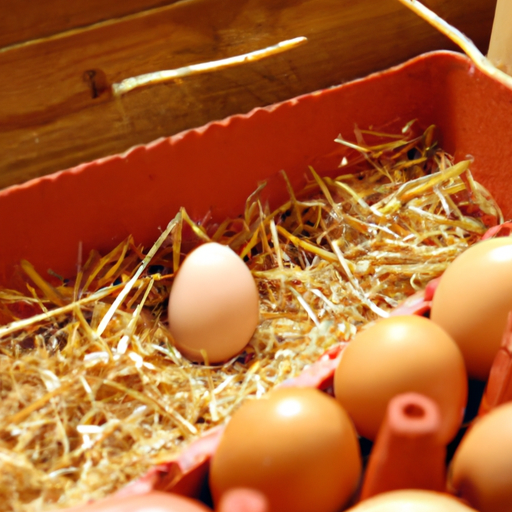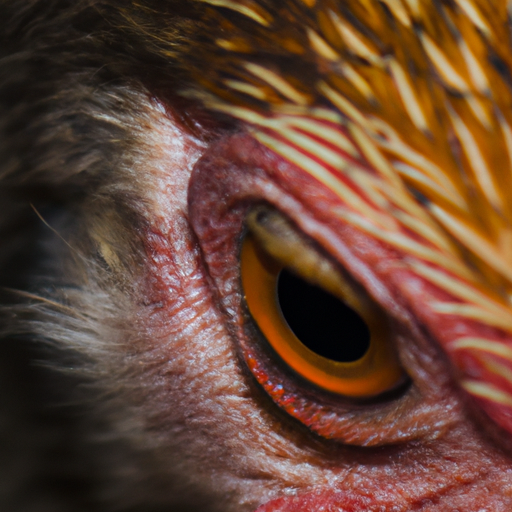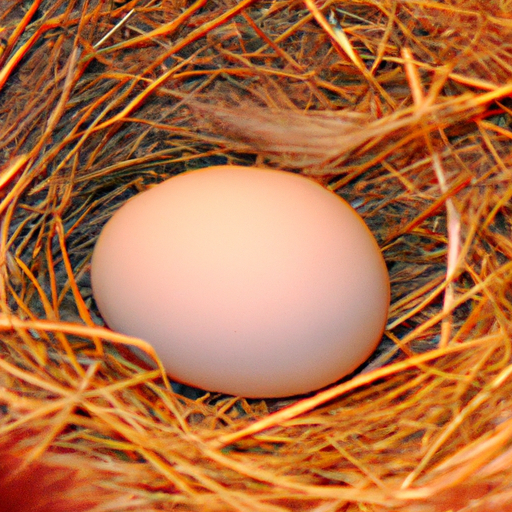Are your hens mysteriously indulging in the odd habit of pecking at their own eggs? It may sound perplexing, but this behavior can actually be quite common amongst chickens. However, there’s no need to fret as there are a variety of effective measures you can take to prevent this egg pecking frenzy. By understanding the reasons behind this behavior and implementing simple strategies, you can ensure that your feathered friends enjoy a peaceful coop and you can continue to enjoy their delicious eggs without any hassle.
Causes of Egg Pecking
Egg pecking, a common behavior among hens, can have several underlying causes. Understanding these causes is essential to effectively preventing this unwanted behavior.
1. Inadequate Nesting Boxes
One of the main causes of egg pecking is the lack of proper nesting boxes for hens to lay their eggs. If the nesting boxes are cramped, uncomfortable, or difficult to access, hens may become frustrated and start pecking at their own eggs. Providing adequate nesting boxes with sufficient space and suitable nesting materials can help alleviate this issue.
2. Lack of Calcium
Another significant cause of egg pecking is a calcium deficiency in hens’ diets. Calcium is essential for the formation of strong eggshells, and if hens do not receive enough calcium through their feed, they may develop a habit of pecking at their eggs to consume the calcium-rich shells. Ensuring that hens have access to a balanced diet containing sufficient calcium can help prevent this behavior.
3. Boredom and Stress
Hens that are bored or experiencing high levels of stress may also engage in egg pecking as a form of self-stimulation or as a means to relieve their frustrations. This behavior can be particularly common in confined or overcrowded environments where hens do not have enough space or mental stimulation. Implementing enrichment activities, such as providing pecking blocks or allowing hens to free-range, can help reduce boredom and stress levels, thus minimizing the likelihood of egg pecking.
4. Overcrowding
Overcrowding within the flock is closely linked to stress and boredom, which, as mentioned earlier, can trigger egg pecking behavior. When hens are overcrowded, they may become aggressive towards each other and their eggs, resulting in broken or damaged shells. Ensuring an appropriate flock size that allows each hen sufficient space is crucial in preventing egg pecking.
5. Curiosity and Habit
Curiosity, particularly in young hens, can also contribute to egg pecking. Hens may peck at freshly laid eggs out of simple curiosity, which can then develop into a habit. Once this habit is formed, it can be challenging to break, requiring immediate intervention to prevent further damage.
Signs of Egg Pecking
To effectively address and prevent egg pecking, it is essential to recognize the signs of this behavior. When observing your flock, watch out for the following indicators:
1. Broken or Damaged Eggs
One of the most obvious signs of egg pecking is the presence of broken or damaged eggs. Hens that peck at their eggs often cause cracks, fractures, or complete destruction of the shells. If you frequently find broken eggs in the nesting area, it is essential to identify the underlying cause and take necessary measures to prevent further damage.
2. Egg Yolk on Feathers
If hens are pecking at their eggs, there may be traces of egg yolk found on their feathers. This occurs when hens puncture the shell and consume the contents of the egg, leaving behind evidence on their plumage. Regularly inspecting the feathers of your hens can help detect egg pecking early on.
3. Presence of Shells in Nesting Area
Another sign of egg pecking is the presence of eggshells in the nesting area. Hens that engage in this behavior may leave behind pieces of shell as they break and consume their own eggs. Monitoring the nesting area and promptly removing any eggshell fragments can help deter further egg pecking and reduce the spread of this unwanted behavior.
Consequences of Egg Pecking
Understanding the consequences of egg pecking is crucial in highlighting the importance of prevention and intervention. Ignoring or neglecting this behavior can have detrimental effects on both egg production and the overall well-being of your flock.
1. Egg Loss and Reduced Productivity
The most immediate consequence of egg pecking is the loss of eggs. Hens that continuously peck at their own eggs cause damage that renders the eggs unsuitable for consumption or sale. This results in a decrease in overall egg production and reduces the potential income from the flock. Preventing egg pecking is essential to maintain productivity and maximize the number of marketable eggs.
2. Spread of Unwanted Behavior
Egg pecking can quickly spread within a flock if left unaddressed. Other hens may observe and imitate this behavior, leading to a cycle of egg pecking that becomes increasingly difficult to manage. Early intervention and prevention measures can help contain this unwanted behavior and protect the entire flock from its negative effects.
3. Egg Eating Habit Formation
In some cases, egg pecking can escalate to egg eating, where hens consume the contents of the eggs intentionally. This habit formation can be challenging to break and may require more extensive intervention measures. Not only does egg eating result in further egg loss, but it also robs the hens of vital nutrients, potentially leading to nutritional deficiencies and health issues.
Preventing Egg Pecking
Taking proactive measures to prevent egg pecking is crucial to maintaining a healthy and productive flock. By addressing the underlying causes and implementing suitable prevention strategies, you can minimize the likelihood of this behavior and safeguard your eggs.
1. Providing Adequate Nesting Boxes
Ensuring that your hens have access to suitable nesting boxes is essential to prevent egg pecking. These boxes should be spacious, comfortable, and easily accessible to the hens. Adding nesting material, such as straw or wood shavings, can provide a cozy environment that encourages hens to lay their eggs safely. Regularly clean the nesting boxes to maintain hygiene and reduce the chances of egg pecking.
2. Ensuring Sufficient Calcium Intake
A well-balanced diet that includes adequate calcium is crucial in preventing egg pecking caused by a deficiency in this essential mineral. Provide your hens with a high-quality layer feed formulated specifically for egg production, or supplement their diet with crushed oyster shells or calcium supplements. This will ensure that the hens have sufficient calcium to form strong eggshells, reducing the likelihood of pecking.
3. Reducing Boredom and Stress
Creating an enriching and stimulating environment for your flock is vital in preventing boredom and stress-related egg pecking. Provide access to an outdoor area for free-ranging, where hens can scratch, peck, and explore. Additionally, consider introducing chicken toys or hanging treats, such as cabbage or corn, for them to peck at and play with. Regularly rotate and diversify their environment to keep them engaged and content.
4. Managing Flock Size and Space
Overcrowding is a significant contributor to egg pecking. Ensure that your flock has ample space to move about comfortably, both inside the coop and in the outdoor area. Aim for a stocking density that allows each hen to have at least four square feet of space in the coop and ample room in the outdoor area. Managing the flock size and space effectively will help reduce stress and aggression among hens, lowering the likelihood of egg pecking.
5. Breaking the Habit
If your hens have already developed a habit of egg pecking, breaking this behavior may require immediate intervention. Collect eggs frequently and promptly, minimizing the opportunity for hens to notice and peck them. Consider using fake or ceramic eggs in the nesting boxes to discourage pecking. If necessary, isolate persistently aggressive hens to prevent the spread of the behavior to others. Consult with a poultry expert for additional guidance on methods to break the habit and prevent further damage.
In conclusion, understanding the causes, signs, and consequences of egg pecking is crucial in effectively preventing and managing this unwanted behavior. By providing suitable nesting boxes, ensuring a balanced diet, reducing boredom and stress, managing flock size and space, and addressing the habit early on, you can create a safe and productive environment for your hens. By taking these measures, you will not only protect your eggs but also promote the overall well-being and happiness of your flock.




